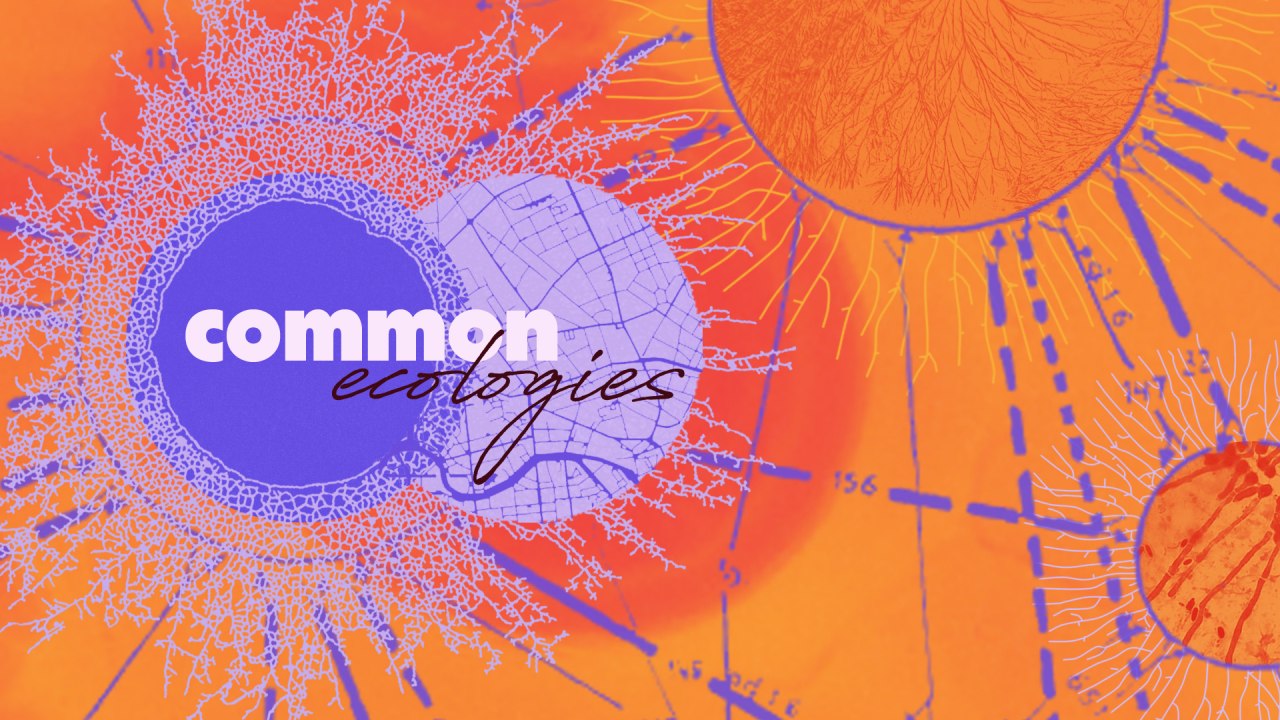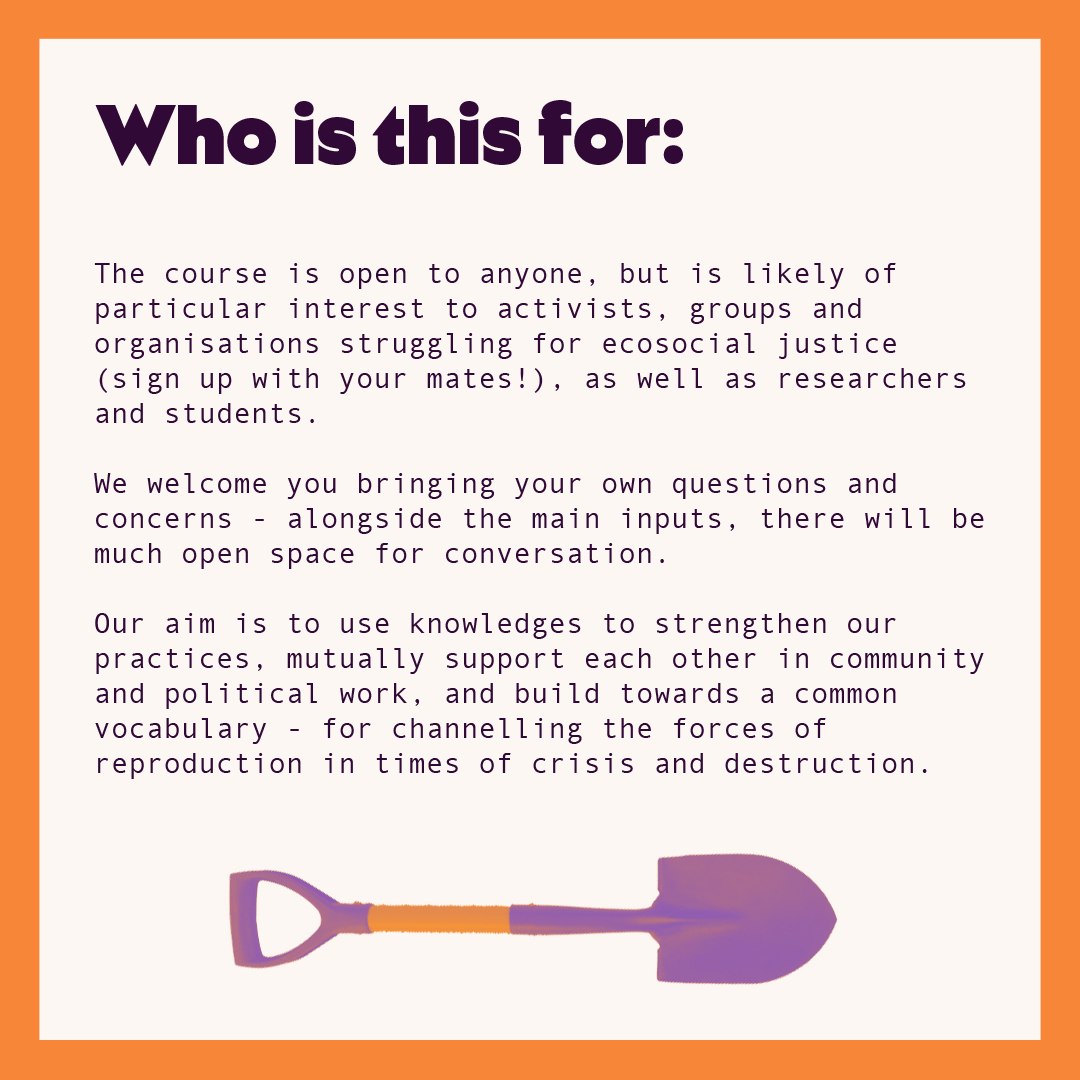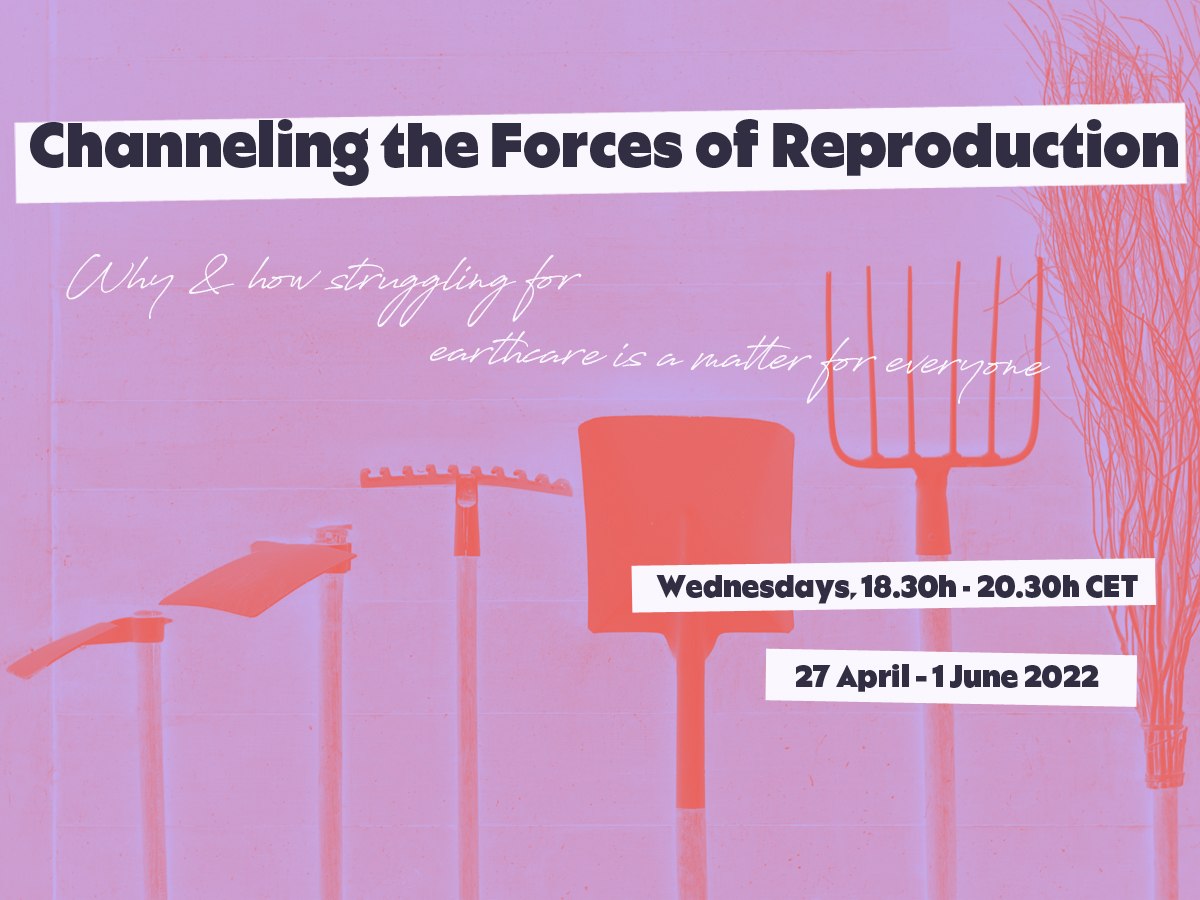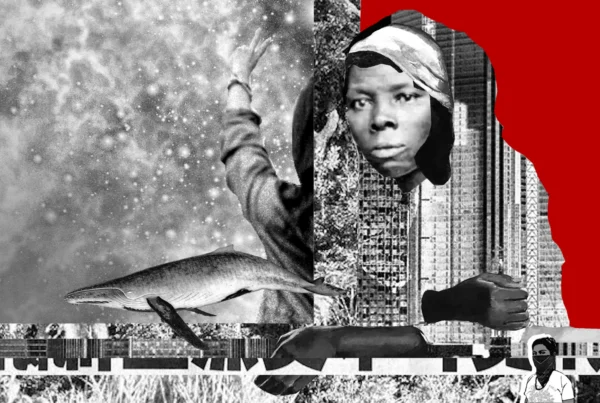By Common Ecologies
The Common Ecologies School is a platform for movement learning with two first online courses and a summer school. The school’s aim is to facilitate conversations across different struggles, grappling with our present context of socio-ecological crisis by learning from different practices and debates – to build the transversal & translocal power and care we need.
Why Common Ecologies?
We embark on this endevour to help weave struggles for socio-ecological transformation, and to step up our collective thinking and action. What we know so far: the pandemic, war, and climate crisis are making the connections and limitations of current capitalist systems clear. We also know that the ecosystem crisis will produce disasters and transformations. We live in critical, unprecedented times, and there is much to learn.
We need to transform both how we produce and how we care – that much is clear. To replace the ecocidal dynamics of endless accumulation and growth with communal wealth and joyful sufficiency. But how may we engage in and shape these processes in a just and ecological direction, while fighting against disaster capitalism and nationalism? We need to produce and circulate tactics, strategies, and ideas appropriate for the ecosystem crisis – and to work out ecological practices, policies, and institutions that can align the reproduction of human societies with the capacities of the web of life.
With Common Ecologies, we set out to contribute to foster learning processes across movements out of a desire to learn ourselves and an immense sense of potential of current struggles. Many movement knowledges are ripe and ready for synergies, others push us to ask difficult questions together and overcome limitations of past practices and ideas. We offer this space to movements as one of translation, discussion, inspiration and allying.

Illustration by Amanda Priebe.
Why we need movement learning platforms?
We often find ourselves caught between quick seminars and online events on the one hand, and movement summits and bilateral contacts on the other. Important as they all are, they rarely lead to the sustained exchanges, learning, and relations we may need. For these reasons, we want to build a movement infrastructure open for others to use, to build the strength and power we need to overcome the current impasse.
Today, only social and ecological struggle will give us the education we need to face the ecosystem crisis. Mainstream education generally fails to recognise the urgency of the moment, and when it does, it downplays the importance of struggle and antagonism, and the necessity of radical transitions and transformation. Social and ecological movements focus much of their energies on the urgencies of day-to-day organising and struggle, often producing incredibly rich lessons, strategies and concepts. However, these often don’t travel far, and movements often don’t have the capacity to engage, in a sustained way, with what lies between them.
As an independent school and space of research and thinking, we can focus on what is in-between movements and their issues: here we can think about overlapping concerns and possible alliances and articulations, about tensions and how they can be overcome or made productive, about distances that need to be bridged.
So, as Common Ecologies we offer to facilitate training, research, and transferable knowledge production – as a part of a wider network of past and present movement schools.
What is the purpose of Common Ecologies?

How?
We facilitate online courses and embodied encounters, as well as building an online platform for movement knowledges in the form of texts, podcasts, videos and toolkits. We’re linked into a web of different struggles across Europe and beyond, accompanied by a series of amazing advisors as well as teachers, and look to learn from the many generations of activists that are powerfully pushing for transformation.
We engage a host of different facilitation tools and techniques, learn from collective processes (success and failure), and work towards making Common Ecologies interesting for others to use – for courses accompanying your campaigns, organising, research, educational or political work. Our activities will be run via a solidarity-based
contribution model as well as via cooperations.
Check out our website http://

Illustration by Amanda Priebe.





